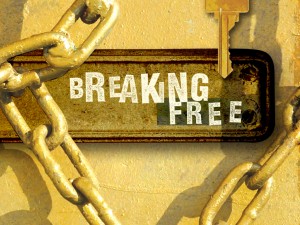Breaking Free!!!
Thursday, November 10th, 2011 6:51:03 by Khayyam Bokhari
“No, Jihad does not mean holy war, it means struggle in Arabic,” this was a phrase that my Muslim friends and I repeated all too often in the aftermath of 9/11 in Britain. My generation who grew up in the shadow of 9/11 have had
our religious experiences shaped not by moving Sufi poetry, reading philosophy, speaking about theology or researching about our religious traditions. Our religious experience has been shaped by an act of symbolic political violence; it has been shaped by
questions of war, accusations of terror and interrogations about our loyalty which brought up the question of identity.
In school, “Muslim panels” were established by my old PDS (personal development studies) teacher to be a way of breaking down barriers. During the panels which took place every year, Muslim students volunteered from across the
school to participate in a Q&A with classes that consisted of 14-15 year olds.
When I was in school, I volunteered and I was deeply disturbed. Other Muslim students were too apologetic, not well read enough, too timid and nervous to respond confidently to searching and “in-your-face” questioning. I thank
God that there are people still in the West like my teacher who recognize the need for dialogue and discussion – but I wonder what the use of such discussion is.
The questions asked always focused on the same topics – terrorism, Osama Bin Laden, Arabs, and the Middle East. Terrorism was the question most of the students had – “does Islam allow suicide bombing?” and “what is jihad?”. There
were some provocative if not nasty questions such as one about why so many Muslims seemed to be owners of corner shops and derogatory questions about the hijab and burqa. But the fact that the discussion never moved beyond these few topics was the disturbing
part – are we always going to have to apologize for global acts of terrorism? Are we always going to have to carry the burden of sins committed by totalitarian States and global terrorists? It made me wonder whether British Muslims will ever be able to establish
an independent civic presence in the UK that can define the public discussion on its own terms.
Surely, British Muslim can discuss other issues apart from terrorism, because the student panels suggests that younger generation of British citizens are still not prepared to move beyond the deeply cosmic wounds 9/11 inflicted,
which have left us psychologically paralyzed. Ten years on and the Western public still has a negative opinion about Islam – and there seem little signs of improvement.
But I was always encouraged; individuals like my teacher who were sincerely interested, if not deeply knowledgeable about Islam (more so than Muslims in fact) who wanted to move the discussion to wider issues about social justice,
welfare and philosophy. Many in the West want to move beyond the stereotypes and have a deeper conversation about political values and what common ground can be established.
To be fair, the students at my school were right in asking the questions they did – how could they not. My generation has been subject to images of grotesque barbarity, mind boggling extremism and fatal fanaticism that all had
connections with Muslims in one form or another. But the cycle of dogmatic paralysis that 9/11 has inspired must be broken free. I feel that British Muslims and indeed American Muslims have been held back by 9/11, constantly reacting to the same questions
without moving the debate to other issues.
Confidence, the ability to express oneself clearly with clarity and consistency and freedom are the things that Western Muslims need. Remember 9/11 and remember the innocent victims, but don’t let it control you. Because 9/11 shouldn’t
have changed the world – because if you think about it, you must be pretty messed up to let the actions of terrorists dictate your values, distort your actions and shape your morality. Because of 9/11, national security was the go to card for governments wishing
to carry out torture and erode civil liberties. The securitization of public life has signaled a polarization in the political discourse in the UK and in the case of the US has rendered politics beyond hope and beyond repair.
The biggest hurdle to face is carving out a space in the public sphere where British Muslims can take part in the national conversation about politics and wider social issues. And here lies the problem – there aren’t many public
British Muslim figures who can express themselves eloquently with confidence.
9/11 exposed a crisis of political and moral authority within Muslim communities in the UK which I still feel has not been resolved till this day. It doesn’t help that the tabloid media in the UK exacerbates the problem by giving
coverage to extremists whilst ignoring liberal voices. So I hope that after this anniversary of 9/11, we can break free from the cycle and create our own destinies rather than have them continually written for us.
Short URL: https://www.newspakistan.pk/?p=3078

















